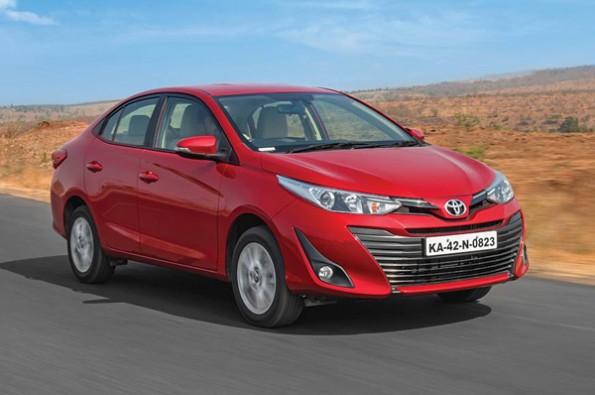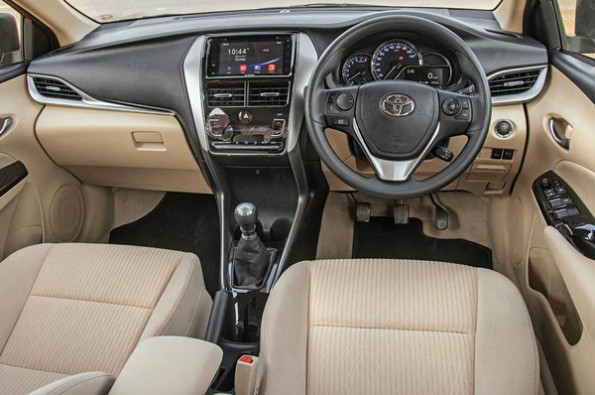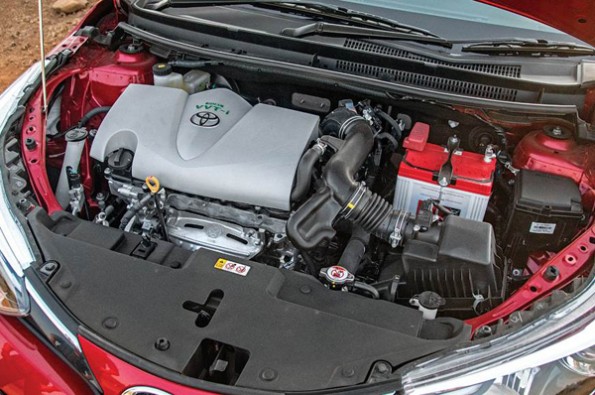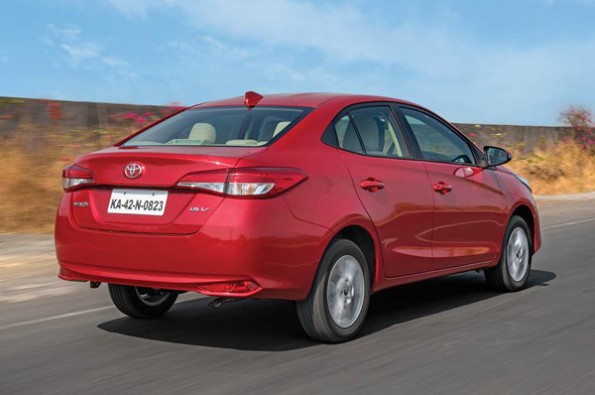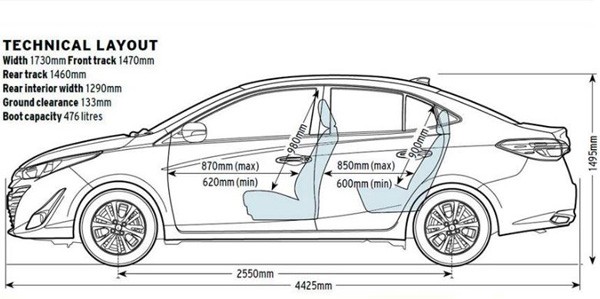Toyota is known to give its owners a trustworthy ownership experience and this exactly why Indian having a liking for it. However, the competitor brands also have a strong presence in India. This means, everything comes down to just how good the car is and not just the brand. Toyota has entered the mid-size sedan segment with the Yaris, offering it with segment-first safety tech like ESP, hill assist, traction control etc. All variants of the Yaris also come with seven airbags and ABS.
The Yaris is also heavily equipped; it features a 1.5-litre petrol motor that can either be had with a six-speed manual or CVT. But, with a price ranging from 8.75-14.07 lakh, it is the most expensive car in the segment. We find out if the car is actually worth the price Toyota is asking for.
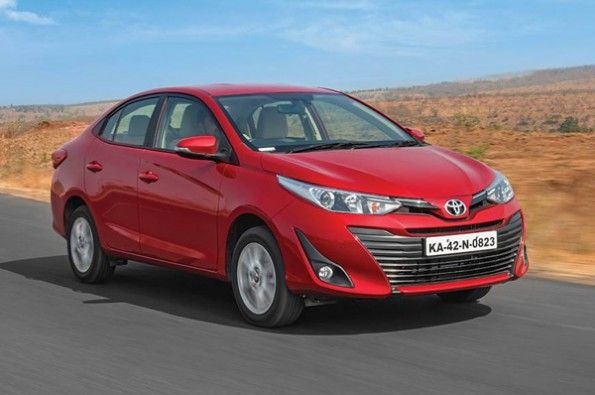
On the outside
The Yaris has been manufactured on the ‘B platform’ that can be seen on other international offerings from the company. This car first made its debut in 2013 and received a major facelift in 2017. We get the latter in India. Usually, a car in this segment grows with every generation update, but this one still appears to be smaller than its competition. However when it comes to the weight, the Toyota weights 1,120kg, which is more than the City and Ciaz.
New Toyotas like the Innova Crysta and Fortuner feature a bold design. They have styling that gives them a unique appearance. However, when it comes to the Yaris, the designers have been less bold. The car can’t be considered well-styled because Toyota have played it safe with this car. Nonetheless, it features some unique touches like the large headlights and huge front grille. The top-spec variant also features LED DRL strips on the grille but they don’t look too nice.
The car also has vertical fog light casings which add some uniqueness to the front of the Yaris. However, the car has disproportionate front and rear overhangs. The wheels too, are disproportionate and look too small. This could be because the Indian Yaris rides much higher than global models. If you look at the roof of the car you will notice the wavy design, this has been in order to increase rigidity.
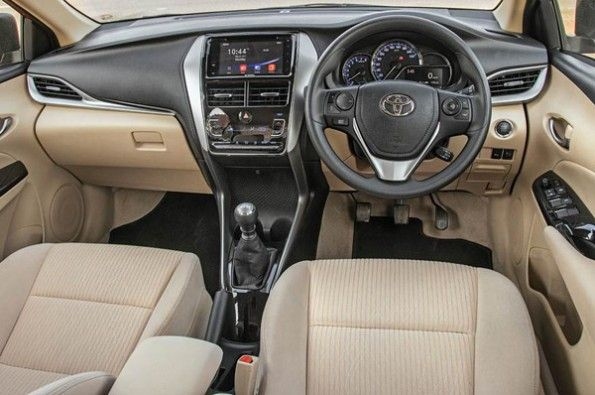
On the inside
On the inside all you see in beige for the most part however, it does make the cabin feel well lit up. The dashboard looks neat and has premium-looking matte silver highlights. But the dashboard lacks soft-touch materials and is kind of hard. The car also has artificial stitching on the dashboard and steering wheel. The dash features a piano-black material as well which further add to its appeal. While there is a lot of reflection on the angled instrument cluster, it still has easy to read fonts.
The front seats can be controlled electrically – a segment-first feature. They are also wide and have good room but lack lumbar support. The car could also have nicer ergonomics in general, the front armrest is almost unusable and the console is too far behind. The steering is also placed closer to the dashboard than one would like. The driver footwell is cramped leaving no room for the dead pedal.
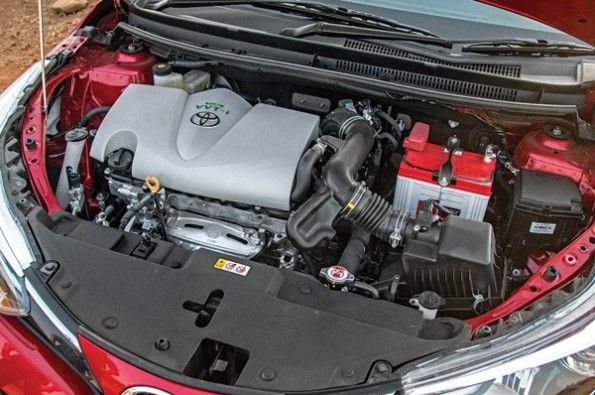
How does it perform?
Powering the Yaris is the same 1.5-litre, four-cylinder petrol motor found in the Etios. However, it has been significantly tweaked for this application. Power now stands at 107hp while torque is at 140Nm. The responsiveness is best when one gives little throttle input. To get the most out of the engine you will require downshifting. The car makes its power at the top of the rev band which means you will have to stay there to get some performance out of the car.
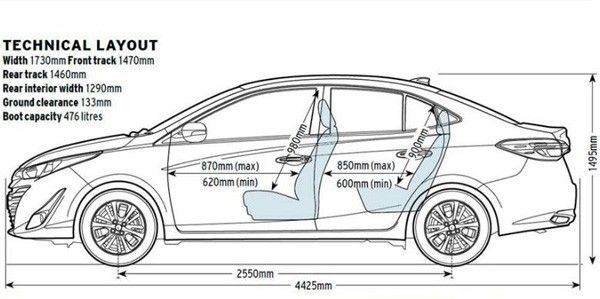
The Suspension on this car has been reworked for India. The dampers are now stiffer and springs are longer. This will help it take on our bumpy tarmac. The car also rides a slightly firm manner but eats up potholes without a fuss. The Yaris also has more-than-adequate ground clearance and the car takes on speed breakers without difficulties. Overall, the good ride quality is one of the Yaris’ selling points.
If you drive the car in a sporty manner on curvy roads, the grip levels will impress. The 185mm tyres and mechanical grip thanks to the decent suspension set-up work to provide the impressive grip. Overall, the handling remains predictable. Interestingly, the steering in the car doesn’t feel too light and gains weight as the speeds get higher.
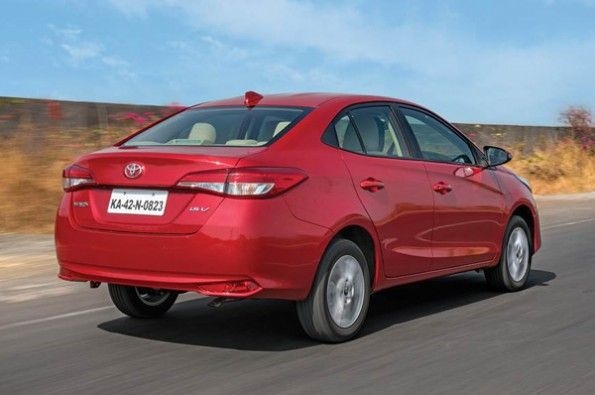
Should I buy one?
The Yaris comes through as a well-built sedan that will likely be as trustworthy as most other offerings from the manufacturer. What it does lack is the emotion of its rivals. It doesn’t drive or look unique like the competition does. The performance is adequate and the handling is average. The only place the car really shines is in terms of the comfortable suspension.
The car does also feel very safe, which is not surprising considering it offers segment leaders safety equipment. It gets seven airbags, ESP and hill launch assist. The car also has 5-star crash rating. But, the car does miss out on equipment like cooled seats, sunroof and LED headlamps that the competition offers. In conclusion, the Yaris is not really exciting to own and the high price doesn’t make it value for money either.
